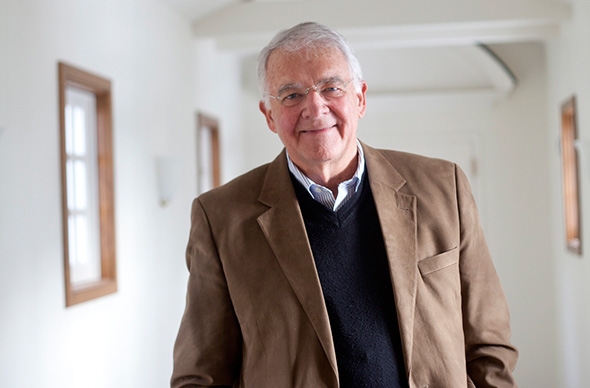Read the full story by Catherine M. Melocik, published by the Tuck School of Business.

Professor Rick Shreve tells wonderful stories. A true Renaissance personality—the Harvard Business School graduate nearly became an Episcopal priest—Shreve has gone from Navy nuclear-submarine officer to Morgan Stanley managing director to Yale Divinity School graduate to ethics professor at the Tuck School of Business. All of which informs how he teaches MBA students about business ethics in his “Ethics in Action” course.
You have a very interesting career path. How did you end up in divinity school, after all you’d previously done?
It really started when I came home from the Morgan Stanley partners meeting where we had decided to take the firm public [in 1986]. My wife, Shelly, and I were living with our five children in a big house in Greenwich, with a sizable mortgage. I knew that the vote to go public would give the family the flexibility to do something else (I tell my students that’s a good career move—be a partner in an investment bank when it goes public). Shelly said, “What would you do if you didn’t have to work?” I said, if it were just up to me, I’d go back to school, and I ended up going to seminary.
How did you start teaching ethics at Tuck?
After seminary, we had the wonderful experience of spending six months traveling around and figuring out where we wanted to raise our children. When we got to Hanover, Shelly said, this is it! I was spending three days a week as a volunteer chaplain at Mary Hitchcock Hospital and, through friends of friends, I was introduced to Tuck and asked to do an ethics presentation during Orientation Week. That presentation evolved into a nine-session mini-course. When Paul Danos arrived as dean, we combined my course with his idea of having guest lecturers and other professors teach in it, and that’s how it developed into today’s course.
